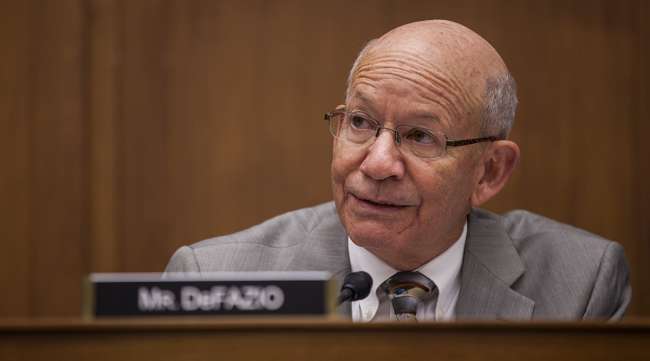Senior Reporter
Rep. DeFazio on Earmarks Ban: ‘Don’t Think We Need That Rule’

WASHINGTON — The next chairman of the transportation policy panel in the U.S. House of Representatives said the ban on earmarks the GOP imposed nearly a decade ago is no longer needed.
Rep. Peter DeFazio (D-Ore.) told an audience at an event hosted by The Atlantic magazine on Dec. 5 the ban is “nonsensical” and said that, if properly applied, earmarks can be useful.
Prior to the ban, members of Congress often dedicated federal funds for specific projects in their districts. At times, earmarking allowed a lawmaker to bypass authorizing committees.
DeFazio will lead the Transportation and Infrastructure Committee beginning in January and acknowledged he has sought to reform the earmark process.
DeFazio: The President really wants to do an infrastructure bill; people are tired of being stuck in congestion #AtlanticFixIt pic.twitter.com/CWzEU5lQOt — Eugene Mulero (@eugenemulero) December 5, 2018
“Do we think that all of the wisdom on how to better serve the people of your district, of your state if you’re a senator, comes from [U.S.] DOT in D.C. or your state DOT? No,” DeFazio said.
“If we have a totally transparent process with people who are more accountable than the Secretary of Transportation, or more accountable than the bureaucrats who run your state agency, you might get some projects done that they’re ignoring,” he said.
Concerns raised by watchdog groups, academics and congressional observers about potential misappropriation of funds related to earmarks helped to convince Republican leaders to ban them after the 2010 Tea Party wave elections. Earmarking funds for Alaska’s “bridge to nowhere” — a project spearheaded by that state’s late Sen. Ted Stevens — brought the issue national exposure.


